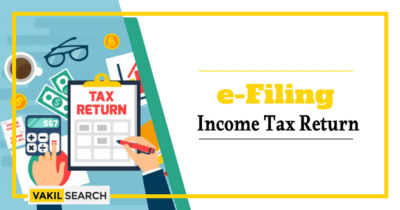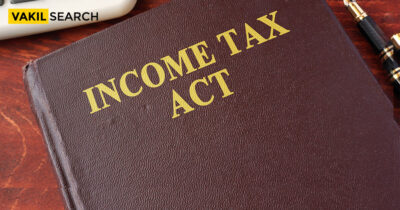Section 40A(2)(b) of the Income Tax Act in India is a crucial provision that addresses certain deductions related to payments made to specific individuals or entities. Its main aim is to ensure that financial transactions with related parties are carried out fairly and do not involve any tax evasion.
The Income Tax Act’s Section 40A (2) gives an Assessing Officer the authority to deny cost deductions. A deduction for income taxes may not be allowed under Section 40A(2) if the expense is deemed to be excessive or undervalued in comparison to the fair market value of the relevant goods, services, or facilities.
Prohibiting Expenditure Incurred on Relatives
The following circumstances could result in expenditure under this section not being allowed:
- The payment needs to be related to expenditure.
- Specific people must receive the payment.
In comparison to the fair market value of the goods, services, or facilities purchased, the benefits received by or accruing to the assessee from the payment made, or the legitimate business needs of the taxpayer’s business or profession, the assessing officer finds the expenditure to be excessive and unreasonable.
If a specific transaction covered by Section 92BA of the Income Tax Act occurs at an arm’s length price as described in Section 92F, then these restrictions are recognised to be null and void.
Specified Person
Taxpayers should be aware that certain payments made to specific people are prohibited by the Act while they are recording the specified expenditures in their books of accounts. In relation to this section, the following people are regarded as being specified:-
Individuals
One or more of the individuals may be a person’s spouse, brother, sister, parent, grandparent, son, or daughter, or another lineal ascendant or descendant. Simply put, the specified person of the individual assessee could be any relative of the individual assessee. If the individual assessee has a major interest in the business of that person or if any of their relatives have a substantial stake in that person’s business, then that person is the designated person of the individual assessee Because of this, the laws apply to everyone whose business or profession the individual or their relatives have a significant stake in.
Company/Firm/HUF/ AOP
The provisions may be applied to company directors, business partners, HUF or Association of Persons (AOP) members, as well as to family members, close relatives, business partners, or directors themselves. The clause also applies to any individual in whose business or profession a director, member, or relative retains a considerable interest through partnership.
Your financial ally – Calculate your income tax with confidence using our reliable and user-friendly Income Tax Calculator.
- If the assessee is a company, the designated person of the assessee-company is any director of the assessee-company or a relative of that director. The designated person of the assessee-company is any individual who has a significant stake in the enterprise or line of work of the assessee-company, whether that individual or a relative of that individual.
- The designated person of the assessee-firm is the assessee or a relative of the partner in the firm. Any individual engaged in business or practice is the firm’s specified person if the firm, a partner in the firm, or a relative of that partner has a significant financial stake in that person’s enterprise.
- If the assessee is the HUF, the designated person of the assessee HUF is a member of the family or a relative of such a member. Any person who is engaged in business or practice is the HUF’s designated person if that HUF member, a member of their family, or a relative of that member has a significant financial stake in that person’s enterprise.
- If the assessee is the AOP, the designated person of the assessee AOP is a member of the AOP or a relative of such a member. Any person who is engaged in business or practice is the designated person of the AOP if the AOP, a member of the AOP, or a relative of one of those members has a significant financial stake in that person’s enterprise.
Which Deductions Are Disallowed Under Section 40A(2)?
Under Section 40A(2)(b), the following deductions may not be allowed:
Excessive Payments to Specified Persons: If a business or individual makes payments to certain specified persons, like relatives or closely connected individuals, and it appears that these payments are more than what’s considered a fair market value, the excess amount can be disallowed as a deduction for income tax purposes.
Payments Without Adequate Documentation: It’s crucial to keep proper records and documents, such as invoices or agreements, for payments made to related parties or specified persons. If you can’t provide these documents as proof, the deductions for such payments may be disallowed.
Other Taxpayers
Other taxpayers who qualify under this provision include those who have a major stake in the business or line of work that the payer operates. The clause also applies to any company, firm, AOP/HUF, and their family members that have a sizable stake in the payer’s line of work.
Explanation of what Substantial Interest is :
If a “designated person” owned shares in the prior year and had at least 20% of the voting power in that particular prior year, that person is deemed to have a considerable interest in the business or profession. These shares shouldn’t have been eligible for a fixed dividend rate or the chance to partake in earnings. In other situations, the taxpayer is regarded to be specified if they were entitled to at least 20% of the business or profession’s profits in a certain prior year. Only if the requirement of considerable interest is met will the relevant deductions for expenses under the Act be approved.
Section 40A (2) of Income Tax Act- workings
Payments to relatives and associated persons are covered by Section 40A(2) of the Income Tax Act of 1961. It states that if the assessee incurs any expenses for which a payment is to be made to a specific person and the assessing officer determines that those expenses are excessive or unreasonable in comparison to the fair market value of the goods, services, or facilities for which the payment is made, the assessee’s legitimate business or professional needs, or the benefit derived by or accruing to him therefrom, the assessee must pay back as much of those expenses as he can. For instance, suppose an assessee pays Rs. 25,000 for goods from a specific person and debits that sum from the profit and loss account. However, such goods only have a fair market value of Rs. 20,000. The assessee should have only charged Rs. 20,000 in the profit and loss account, according to this. As a result, the excess amount of Rs. 5,000 must be added back to the net profit when calculating the assessee’s business income in accordance with section 40A(2) of the Income Tax Act of 1961. Additional transactions made by the assessee with the specified person listed below that are considered to be expenses for the assessee will be considered related party transactions and must be reported in clause 23 of Form 3CD.
FAQs on Section 40A(2) Of Income Tax Act
Are disallowed deductions under Section 40A(2) void if transactions are made as per Section 92BA?
Section 92BA focuses on determining arm's length prices for international transactions. While both Section 40A(2) and Section 92BA aim to ensure fair market value, they apply to different types of transactions. Section 40A(2) deals with deductions for payments to specified persons, whether the transactions are international or domestic. On the other hand, Section 92BA is specific to international transactions and provides methods for establishing fair prices. Therefore, if a transaction falls under both sections, you should comply with the provisions of both to avoid losing deductions.
Can businesses or professionals claim expenses incurred in their work?
Absolutely, businesses and professional entities can claim deductions for legitimate expenses related to their work. However, it's crucial to maintain proper records and ensure that these deductions comply with the rules outlined in the Income Tax Act. Section 40A(2)(b) mainly deals with situations where payments to certain individuals or entities are considered excessive or lack adequate documentation, potentially leading to the disallowance of deductions.
Who are the individuals specified under Section 40A(2)(b)?
Individuals or entities specified under Section 40A(2)(b) generally include individuals or entities closely connected to the taxpayer or those in which the taxpayer holds a significant interest. This might include relatives, business associates, entities where the taxpayer has substantial ownership, and other related parties as defined in the Income Tax Act.
Conclusion
The empowerment of income tax assessing officers is essentially covered by Section 40A (2) of the Income Tax Act of 1961. This section enables them to prevent certain expenses from being deducted in relation to particular people. This section of the Income Tax Act gives the assessing income tax officer the authority to deny the claim of certain expenses made to particular people as a deduction if that person feels that the expense is excessive or undervalued in comparison to the fair market value of the goods or services. Before denying the assessee’s deduction, the following requirements must be met. Vakilsearch provides the knowledge and assistance regarding section 40A (2) in detail. Expert guidance is provided by them.
Also, Read:










